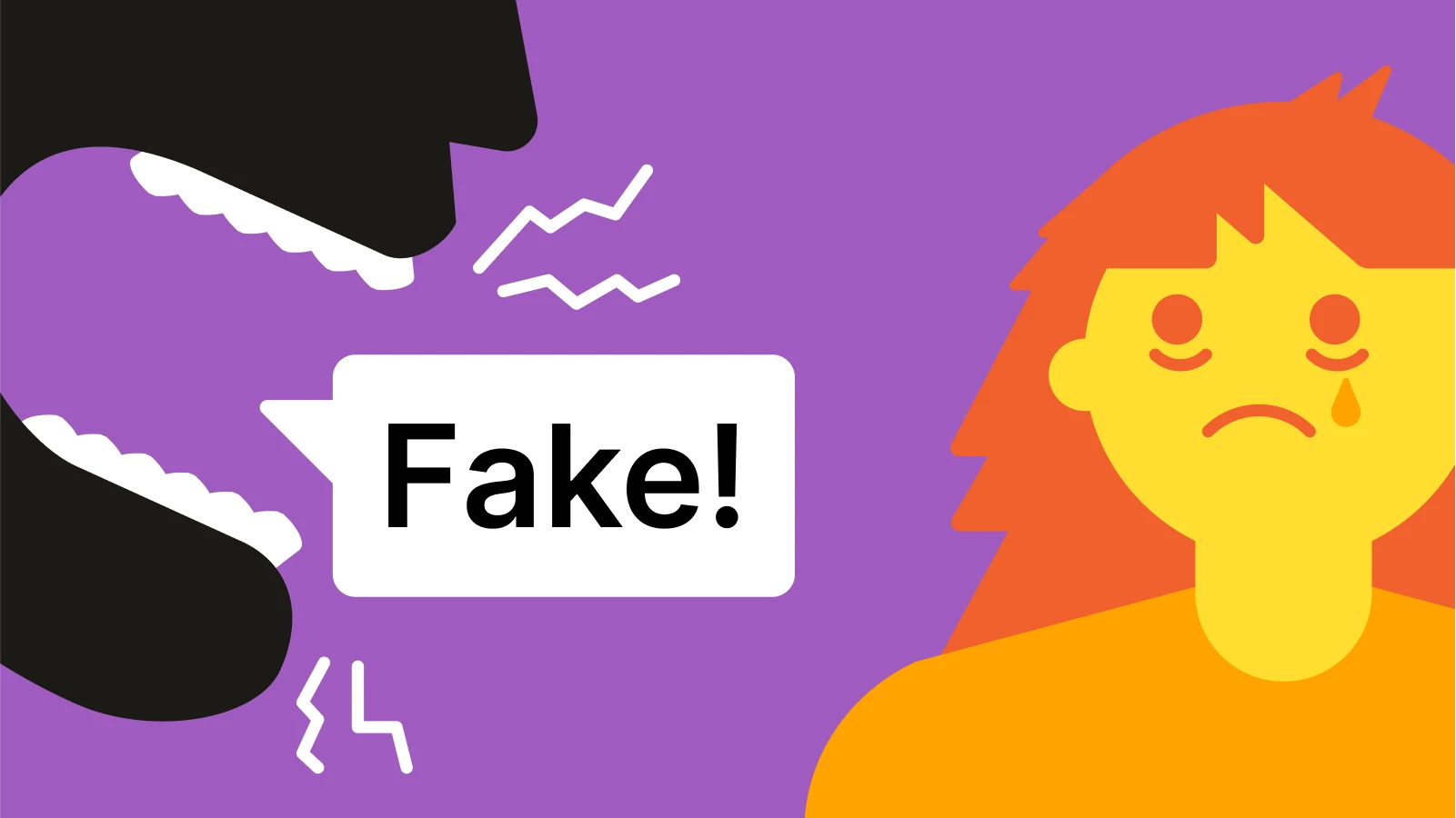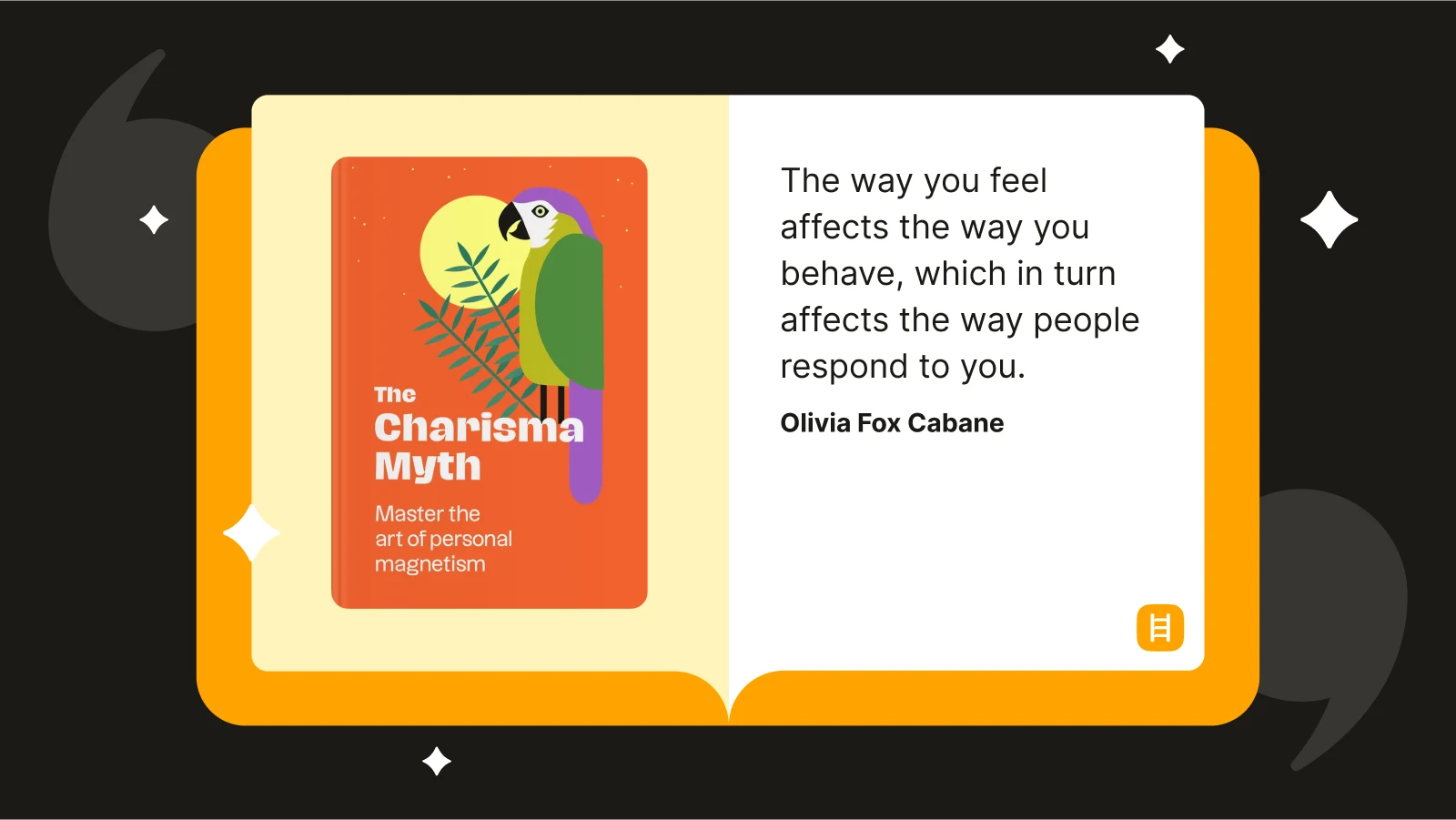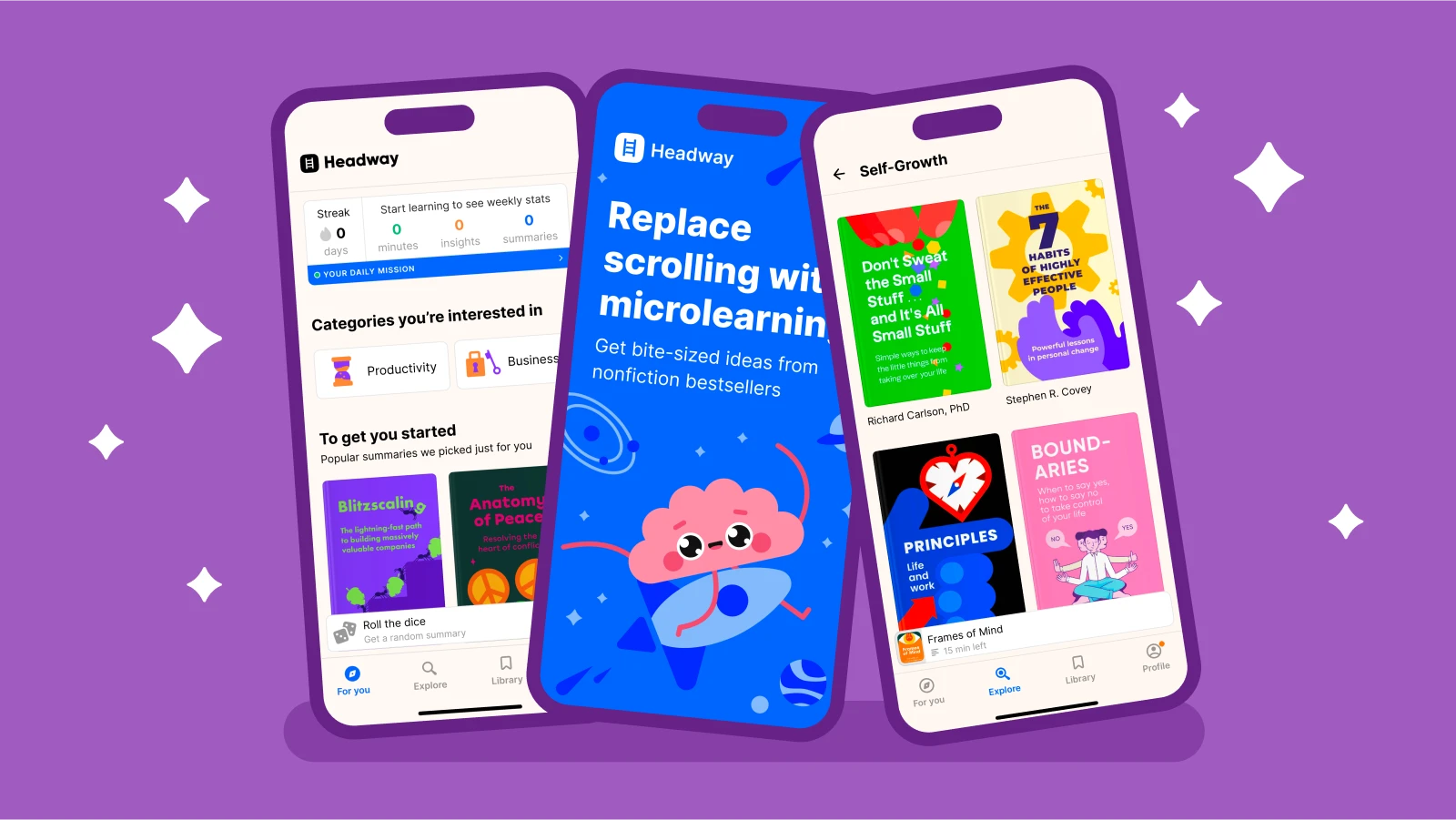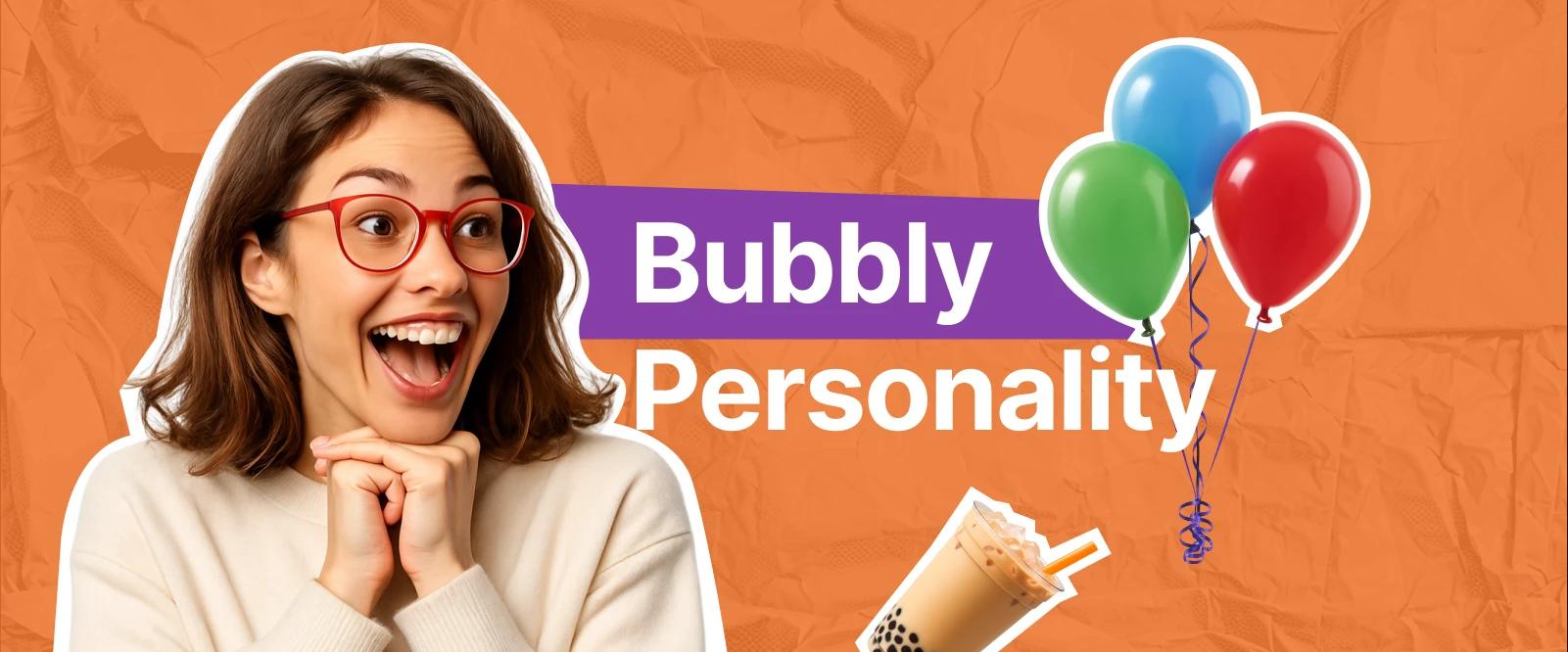Ever been called "bubbly" and didn't know whether to say thank you or take offense?
We've all met that person — the one who turns their routine coffee order into the barista's favorite interaction, gets strangers to open up in elevators, and still has energy left for a dinner party. That's the bubbly effect in action! But what does that actually mean, and can you learn it?
If you've ever wondered whether being bubbly is a superpower or just… a lot — this one's for you. As a trauma-informed relationship coach, I've worked with many clients who use bubbliness as both a gift for deeper connections and a guardrail for quiet protection.
In this guide, you'll unpack:
What a bubbly personality actually is (spoiler: it's not just being loud)
A quiz to find out if you're low-key sparkling inside
How to tell if you're bubbling with charm — or burning yourself out
Easy ways to become more approachable, expressive, and confident
Five book summaries to help you master the art of connection
When bubbliness becomes a survival strategy (and what to do about it)
Let's get into it!
What does bubbly personality mean? Definition and traits
A bubbly personality is full of life, warmth, positivity, and social energy. People with this vibe tend to light up rooms without even trying. Think: expressive, emotionally open, effervescent, and quick to make others feel welcome.
📌 Definition box
A bubbly personality is defined by:
Warmth and enthusiasm
Emotional expressiveness
The ability to uplift others through positive presence
It's usually linked to extroverted personality types like the ENFP, but not always. Psychologists also connect it to something called affective presence — the emotional aftertaste you leave in a room. Some people leave behind drama, others leave calm. Bubbly people? They leave a sense of joy and lightness.
But there's another layer to explore. In a trauma-informed world, bubbliness can sometimes show up as a fawning response — a way of winning safety, approval, or love by being cheerful, pleasing, and emotionally available.
Maybe you learned that being 'upbeat' kept you safe. Or that being cheerful makes you more likable. If so, bubbliness may have become a brilliant coping mechanism.
This doesn't mean your bubbliness isn't real. But it's worth asking: Is my bubbliness rooted in freedom — or fear?
Here's how bubbly compares to other high-energy personality traits:
| Word | Example sentence |
|---|---|
Bubbly | "She has a bubbly personality that draws a lot of people in." |
Effervescent | "His effervescent charm made everyone at the dinner party smile." |
Perky | "Even on Monday mornings, she stays perky and upbeat." |
Vivacious | "The Portuguese host was so vivacious, we instantly felt at home." |
High-spirited | "His high-spirited energy was contagious during team calls." |
Pro tip: You can be bubbly without being loud — and loud without being bubbly.
Do you have a bubbly personality? Take the quiz
Here's a fun quiz to help you check how much of your personality spark is already showing.
Answer yes or no to these:
Bonus somatic check-in:
Notice your body as you read these. Do you feel open and uplifted? Or a bit tense or self-conscious? Bubbliness isn't just about behavior — it starts with how safe your nervous system feels in social situations.
Key traits of a bubbly personality
Here are seven signs you're radiating a bubbly, upbeat presence:
![]()
1. Optimism
Bubbly people are often natural optimists — you tend to expect good outcomes and help others believe in the bright side too. You say, "We'll figure it out," even when there's chaos around.
2. Enthusiasm
You show visible excitement.
You squeal over brunch menus and talk about your favorite podcast like it's your best friend.
3. Humor
You bring levity with a genuine sense of humor — quoting memes in serious conversations and somehow making it all land.
4. Approachability
You feel safe to talk to.
Strangers ask you for directions... or tell their deepest secrets.
5. Emotional expressiveness
You show how you feel — visibly and honestly.
Your face is basically a slideshow. You couldn't fake a poker face if you tried.
6. Social confidence
You're not afraid to reach out, even when it's awkward.
You've messaged someone just to compliment their dog's name.
According to Leil Lowndes in ‘How to Talk to Anyone’, confidence isn't born. It’s built through "little tricks" that create trust fast. Your friendliness isn't forced — it's the kind of energy that gets compliments, job leads, and phone numbers.
7. Positive attitude
You default to encouragement.
Even during conflict, you're the one saying, "Let's work through this."
In somatic therapy, we talk about the nervous system's role in connection. Authentic bubbly people display specific signs of a regulated ventral vagal state.
These signs are animated gestures, steady eye contact, and relaxed shoulders. Also, their laughter comes naturally. These social engagement cues signal, “I’m safe with you.”
Is being bubbly a good thing?
Why being bubbly helps you shine
Bubbly people shine in group settings. You energize teams, create emotional safety in relationships, and make others feel seen. In short: You're likable.
This is especially true in leadership and love — where people remember how you made them feel. As ‘The Charisma Myth’ author Olivia Fox Cabane puts it, "You can be completely silent and still be intensely charismatic." It's not about being loud. It's about being emotionally generous.
When bubbly becomes too much
But let's be real: Bubbliness can come at a cost. You might:
Feel emotionally exhausted after socializing.
Be seen as "too much" or "not serious enough."
Use bubbliness to avoid conflict or mask discomfort.
Sometimes, bubbliness becomes emotional camouflage. You over-function to keep others comfortable and ignore your own needs.
In ‘Emotional Intelligence 2.0’, Travis Bradberry explains that emotional expressiveness is a strength. But without self-awareness, it can lead to burnout. Bubbliness needs to be paired with inner listening and firm mental health boundaries to stay authentic and sustainable.
One client of mine, an ENFP with a radiant laugh and endless stories, told me, "People think I'm always confident — but most days, I'm just afraid of being forgotten." Her bubbliness was real, but so was the underlying ache. Together, we worked on giving her permission to be quiet, sad, or uncertain — and still loved.
Want to explore the roots of similar patterns? Here's how to deal with childhood trauma as an adult is a practical, compassionate guide to understanding what shaped your emotional style.
Can you learn to be bubbly?
Absolutely. A bubbly personality isn't necessarily something you're born with — it's something you can build.
Psychologists call this personality plasticity. Simply put, you can develop traits like warmth, openness, and social energy with intention and practice. Being bubbly isn't about being the loudest in the room. It's about emotional availability. Small, consistent shifts in how you engage. Here's how to start:
1. Practice expressive body language
Try open gestures and eye contact. Only implement what feels authentic to you. Your body speaks before your words do. When you look approachable, people feel invited in.
2. Use emotionally uplifting words
Phrases like "That's amazing!" or "You just made my day" naturally elevate others and make your presence more memorable and enjoyable.
3. Build social routines
Greet people by name, give a small compliment, or ask a thoughtful follow-up. These rituals build warmth and predictability — the foundations of safe social connection.
4. Reflect and refine
At the end of the day, ask: When did I feel most energized? Where was I masking or forcing it? Bubbliness rooted in alignment, not performance, will always last longer.
As Jennie Allen writes in 'Get Out of Your Head',"Our thoughts dictate our actions. If we want to change our lives, we start with the mind." Becoming more bubbly doesn't mean faking it — it means gradually shifting your inner narrative toward connection, safety, and joy.
Need support building these habits? ‘Atomic Habits’ by James Clear breaks down how small, consistent behaviors create big personality shifts over time. He writes, "Every action you take is a vote for the person you want to become."
Not sure where to start? Try this list of small social goal ideas to begin showing up with more warmth and confidence — one tiny habit at a time.
True magnetism doesn't require chasing or performing — it starts with how aligned you feel in your body, values, and presence. If you're curious about that kind of attraction, check out "I Don't Date, I Attract" — a guide to embodying confidence and becoming magnetic without losing yourself.
Common misconceptions about bubbly people
Are bubbly people fake?
This is a widespread misunderstanding. Just because someone is upbeat and expressive doesn't mean they're pretending. In fact, many bubbly people feel very deeply — they simply process those emotions through connection and cheer.
As ‘Emotional Intelligence 2.0’ explains, emotional expressiveness is a form of authentic communication. When it comes from self-awareness rather than performance, it builds trust and psychological safety.

That said, some people learn to use bubbliness as emotional camouflage — especially in environments where being quiet or serious was once met with rejection. The key is not to assume surface-level energy reflects surface-level depth.
Can introverts be bubbly?
Yes! Bubbly doesn't always mean extroverted. Introverts can have an outgoing personality in bursts, especially when they feel safe, passionate, or aligned with their values. The difference? After lighting up the room, they'll likely need solo time to recharge.
‘The Charisma Myth’ by Olivia Fox Cabane emphasizes that charisma is more about presence and warmth than being loud. Introverts can radiate that in quiet, magnetic ways. In this sense, bubbliness is emotional aliveness more than constant sociability.
Are bubbly people always happy?
No one is. Not even the person who makes everyone else laugh.
The idea that bubbly people are "always on" is a myth — and often a burden. Many people who appear bubbly on the outside might be navigating deep emotions underneath. Sometimes, being cheerful is a way to cope, connect, or avoid conflict.
As Brené Brown writes in 'Daring Greatly,' "Joy comes to us in ordinary moments. We risk missing out when we get too busy chasing the extraordinary." Bubbly people often carry both visible joy and invisible complexity. Let's not flatten them into a one-note stereotype.
How to support or work with a bubbly person
Whether managing, collaborating with, or loving someone with a bubbly personality, the key is to honor their energy and their depth. Bubbliness isn't just performance — it's emotional attunement in action.
For managers: Let them lead with energy
Bubbly employees often shine in client-facing roles, team brainstorming, or onboarding. Their natural enthusiasm can set the tone for group morale. But micromanaging their communication style — or mistaking their lightness for a lack of depth — can shut down their strengths.
Try this: Invite them to lead meetings, energize team culture, or mentor new hires — but also check in about overstimulation or social fatigue.
📘 Book tip: In ‘Emotional Intelligence 2.0’, Bradberry highlights how strong self-awareness turns expressiveness into influence. Offer growth opportunities that support both sides of their emotional range.
For coworkers: Don't confuse enthusiasm with shallowness
Just because a colleague is expressive doesn't mean they're not serious. Bubbliness is often layered with care, intelligence, and emotional labor. The "funny one" in the room might also be the one managing unspoken team tension.
Try this: Validate their contributions — not just their mood. A simple, "You really brought the room together today," goes a long way.
📘 Book tip: ‘How to Talk to Anyone’ by Leil Lowndes shares small social moves that build trust — and bubbly coworkers often do them instinctively. Recognize and reciprocate.
For friends or partners: Learn their emotional rhythm
It's easy to assume bubbly people are always "fine." But sometimes, they experience deep waves of emotion and just process them quickly or privately. One day, they're texting heart emojis; the next, they might need space to regulate.
Try this: Ask what support looks like when they're not feeling upbeat. Give them room to be quiet, tender, or tired without assuming something's wrong.
📘 Book tip: In ‘How to Make People Like You in 90 Seconds or Less’, Boothman emphasizes the power of mirroring and pacing. For bubbly folks, that might mean matching their energy — or gently grounding them when needed.
Want to go deeper into emotional nuance in relationships?
Check out How to Be a Better Girlfriend — many of the article's insights apply across love, friendship, and team dynamics.
When being bubbly is a trauma response
Not all bubbliness comes from joy. Sometimes, it has roots in early experiences where we must perform to be loved.
If you learned to be "the cheerful one" in a chaotic home — or to take care of family members' feelings — you may still be carrying that emotional caretaking role.
Signs this may apply to you:
You over-apologize or try to fix awkward silences.
You feel exhausted after socializing but don't show it.
You smile or laugh even when you feel hurt.
These patterns are common, especially among highly sensitive personality types. The goal isn't to abandon your spark — it's to let it come from a place of choice, not survival.
Sometimes, this kind of overgiving can also spill into your relationships — where warmth turns into over-functioning. If you've ever felt unsure whether your cheerfulness is genuine or performative, you might also want to explore these real-life examples of love bombing and how emotional intensity can sometimes mask insecurity or manipulation.

If you often feel stuck in people-pleasing spirals, ‘The Charisma Myth’ by Olivia Fox Cabane offers practical tools to shift your internal state before your behavior. She puts it as, "The way you feel affects the way you behave, which in turn affects the way people respond to you." This means your bubbly charm will land better when it's rooted in emotional safety, not performance.
What bubbly people teach us about connection
Bubbliness isn't just charm — it's social glue.
When someone appears bubbly, they make people feel safe, included, and energized. In somatic language, they're inviting others into a co-regulated nervous system state.
In the trauma-informed world, we often talk about ventral vagal contagion — the way regulated people help others regulate too. Bubbly folks do this unconsciously through smiles, presence, and ease.
In ‘How to Make People Like You in 90 Seconds or Less’, Nicholas Boothman says: "We decide whether to trust someone within the first few seconds." Bubbly people often master this micro-moment by blending energy, eye contact, and openness, and turning it into trust.
Books that help you develop a bubbly personality
Want to grow your sparkle authentically? These books offer practical, research-backed tools for building confidence, warmth, and genuine charisma. Think of them as ingredients for magnetic presence.
‘The Charisma Myth’ by Olivia Fox Cabane
Learn how to radiate presence, warmth, and power — even if you're shy or self-critical.‘How to Win Friends and Influence People in the Digital Age’ by Dale Carnegie
Master timeless strategies for making people feel seen, valued, and eager to connect.‘Emotional Intelligence 2.0’ by Travis Bradberry & Jean Greaves
Discover how self-awareness and empathy deepen your impact and prevent emotional burnout.‘Atomic Habits’ by James Clear
Learn how small, consistent actions can help you become more optimistic, open, and socially confident.‘How to Talk to Anyone’ by Leil Lowndes
Use simple, effective tricks to start conversations, charm a room, and create instant rapport — no extroversion required.
🎧 Want to go deeper?
Take just 15 minutes to read or listen to one of these book summaries in the Headway app. Start your free trial.
Final thoughts: Embrace or cultivate your spark with the Headway app
Whether your bubbly personality is front and center or still emerging, one thing's clear — your energy matters. When shared with intention, it becomes a superpower: connecting people, sparking joy, and building trust in just a few moments.

And if you don't feel naturally bubbly? That's okay, too. You don't have to fake sunshine. Start small — how you greet people, the way you recover from awkward moments, or even a simple daily goal to connect with warmth. Need ideas? Try this list of goal prompts.
Bubbliness isn't about being "on" all the time. It's about showing up with presence, warmth, and authenticity — in a way that feels good for you.
That's where Headway comes in.
With just 15 minutes a day, you can:
Build social confidence without forcing extroversion.
Cultivate charisma and communication habits that stick.
Learn the psychology behind trust, connection, and likability.
Grow emotional intelligence in a way that nourishes, not drains.
🎧 Want to become more confident, charismatic, and emotionally connected?
Start exploring Headway's book summaries on connection, confidence, and emotional resilience, and watch your inner sparkle grow. Start your free trial today!
Frequently Asked Questions
Is a bubbly personality a compliment?
Yes — most of the time! When someone calls you bubbly, they’re usually referring to your warmth, charm, and ability to uplift others. It’s often a shorthand for “you light up the room.” That said, context matters. If it’s used to dismiss your seriousness or emotional depth, it might feel more patronizing than flattering. Take the compliment — and decide what it means to you.
What is the opposite of a bubbly personality?
Think reserved, stoic, or emotionally neutral. The opposite of bubbly isn’t “boring,” though — it could be calm, introspective, steady. Where bubbly people radiate outward, their counterparts tend to hold space inward. Both have their place, and neither is inherently better.
Does bubbly mean attractive?
Not necessarily in a physical sense, but yes — bubbliness can make someone socially magnetic. It signals openness, energy, and emotional availability, which many people do find attractive. As ‘The Charisma Myth’ notes, it’s about how people feel around you. Bubbly folks often leave others smiling — and that’s pretty irresistible.
Does bubbly mean talkative?
Often, but not always. Bubbly people tend to be expressive — which can involve a lot of words — but it’s really about how they communicate. You can be bubbly with your eyes, your laughter, or even your silence, as long as your presence feels warm and inviting.
What to say instead of "bubbly personality"?
If you're looking for variety, try:
Effervescent (sparkly, with a twist of class)
Vivacious (full of life and zest)
Upbeat (consistently positive)
Radiant (emotionally glowing)
Warm and expressive (for a more grounded tone)
You can also be specific: “She brings people together,” “He has such uplifting energy,” or “They’re like a walking sunbeam.”
How to tell if a bubbly girl likes you?
Look for extra sparkle — the kind just for you. If her energy gets softer or more focused around you, if she remembers small details, initiates connection, or shows vulnerability beneath the cheer — you might be more than just another person in the room. Bubbly doesn’t mean flirty by default, so pay attention to consistency, curiosity, and emotional depth.
Which personality type is bubbly?
Bubbly is often associated with extroverted types like ENFP, ESFP, or ENFJ in the Myers-Briggs world — those wired for expression, connection, and emotional vitality. But really, anyone with a strong affective presence (the emotional vibe they leave behind) can feel bubbly — even introverts in the right setting. It’s less about type, more about how safe, seen, and engaged someone feels.













